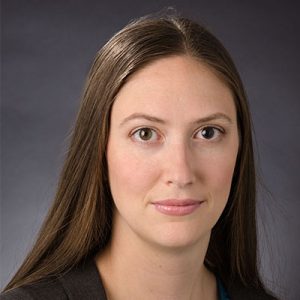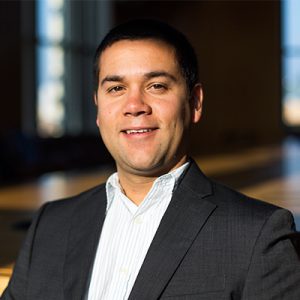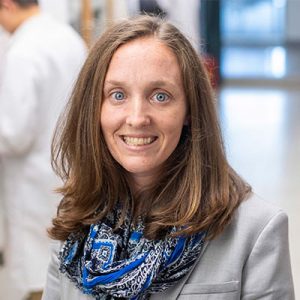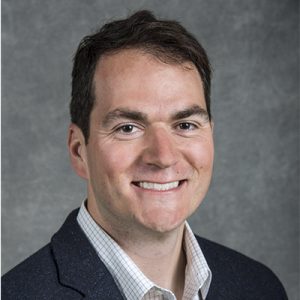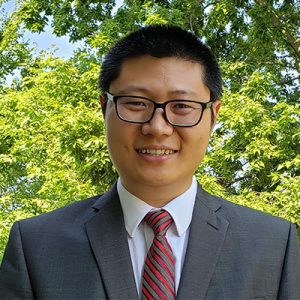The ECS Toyota Young Investigator Fellowship, a partnership between The Electrochemical Society and Toyota Research Institute of North America, a division of Toyota Motor North America, is in its fifth year. The fellowship aims to encourage young professors and scholars to pursue innovative electrochemical research in green energy technology. Through this fellowship, ECS and Toyota hope to see further innovative and unconventional technologies borne from electrochemical research.
The ECS Toyota Young Investigator Fellowship Selection Committee has chosen five recipients to receive the 2019-2020 fellowship awards for projects in green energy technology.
The awardees are:
Prof. Jennifer L. Schaefer, University of Notre Dame
“Use of Liquid-Free, Deformable Electrolytes in Lithium Metal Batteries with Porous Anodes”
Bio: Jennifer L. Schaefer is an assistant professor in the department of chemical and biomolecular engineering at the University of Notre Dame. Her research group studies ion transport, interfacial phenomena, and applied polymer materials in electrochemical and electroactive devices.
Prior to Notre Dame, she held an NRC Postdoctoral Research Associateship at the National Institute of Standards and Technology and completed her PhD in chemical engineering at Cornell University.
Abstract: Solvent-free, deformable electrolytes will be paired with porous anodic current collectors to facilitate uniform lithium metal electrodeposition and high coulombic efficiency. This scheme will allow for the merge of a lithium metal host matrix with a stable electrolyte.
Prof. Neil Dasgupta, University of Michigan
“Multi-Modal Operando Analysis of Lithium-Solid Electrolyte Interfaces”
Bio: Neil Dasgupta is an assistant professor of mechanical engineering at the University of Michigan. He earned his PhD from Stanford University in 2011. Prior to joining the University of Michigan in 2014, he was a postdoctoral fellow at University of California, Berkeley.
He is a recipient of the NSF CAREER award, the AFOSR Young Investigator Award (YIP), and the DARPA Young Faculty Award (YFA). His research focuses on the intersection of nanotechnology, energy conversion, and manufacturing.
Abstract: This project will develop new knowledge on lithium metal-solid electrolyte interfaces. This will be accomplished by leveraging the PI’s unique capabilities in operando microscopy and spectroscopy of electrochemical interfaces to quantitatively probe the dynamic evolution of the Li metal-solid electrolyte interface during battery cycling conditions.
Prof. Kelsey Hatzell, Vanderbilt University
“Tracking Ion Transport Pathways and Hybrid Solid Electrolytes”
Bio: Kelsey Hatzell earned a PhD in material science and engineering from Drexel University in 2015. Prior to joining Vanderbilt, Hatzell was an ITRI-Rosenfeld Postdoctoral Fellow at Berkeley Lab and an NSF Graduate Research Fellow. Since joining Vanderbilt, she has won the ORAU Powe Junior Faculty Award (2017), SCIALOG Fellow in energy storage by the Research Corporation for Scientific Advancement (2017 & 2018), and won an NSF CAREER Award (2019). Her research group works on transport in energy storage systems.
Abstract: Hatzell’s research group intends to examine transport in solid electrolytes for advanced all solid state lithium metal batteries. To probe physical and chemical transformations at buried solid|solid interfaces, they intend to couple advanced synchrotron x-ray techniques with modeling and electrochemistry experiments.
Dr. Nemanja Danilovic, Lawrence Berkeley National Laboratory
“Emerging Interfacial Phenomena at Pt@C/ionomer Interface at 120C and Anhydrous Conditions”
Bio: Nemanja Danilovic is a research scientist at Lawrence Berkeley National Laboratory’s Energy Conversion Group. Nemanja’s research focuses on catalyst and catalyst layer understanding and development for energy conversion reaction devices such as fuel cells, electrolyzers, and regenerative fuel cells. Prior to LBNL, he was a research engineer and cells stack development engineer at Proton OnSite/NEL, and a postdoctoral fellow at Argonne National Laboratory.
Abstract: This proposal aims to develop a high-temperature microcavity setup for interrogating the nanoparticlecatalyst/ionomer interface under high-temperature fuel cell conditions. Specifically, a high-temperature, vapor-fed microcavity experimental setup will be developed and used to explore catalyst-ionomer interactions above 100oC for the first time.
Dr. Zhenhua Zeng, Purdue University
“Towards Overcoming Scaling Rules and Durability Challenges of Low-PGM ORR Catalysts”
Bio: Zhenhua Zeng is a research scientist and a computational electrochemist at Purdue University. He was a postdoc at Argonne National Laboratory and the Technical University of Denmark. He graduated from Dalian Institute of Chemical Physics (PhD) and Hunan University (BS, MS).
His research focuses on chemistry, materials, and interfaces in fuels cells and electrolysis. He has published ~30 research articles, including one in Science and one in Nature Energy.
Abstract: This research will explore the strategies to break the “scaling rules” and eventually establish the principles of scaling-rule-free ORR for the design of the next-generation catalysts for fuel cells operated at a temperature >100°C and to overcome the durability challenges at the high operation temperature.
The selected fellows will each receive $50,000 in grants to conduct the research outlined in their proposals and a one-year complimentary ECS membership. Recipients will then submit a midway progress report and a final written report to ECS after one year of funding. In addition, recipients will publish their findings in a relevant ECS journal using the open access option and/or present at an ECS meeting within 24 months of the end of the research period. Lastly, depending on the research progress and the results obtained at the completion of the award period, Toyota may elect to enter into a research agreement with the recipient to continue the work.
Special thanks to the 2019-2020 selection committee:
- Dr. John Muldoon, Toyota Research Institute of North America, Chair
- Dr. Koji Suto, Toyota Research Institute of North America
- Dr. Tomoyuki Nagai, Toyota Research Institute of North America
- Dr. Tim Arthur, Toyota Research Institute of North America
- Dr. John T. Vaughey, Argonne National Laboratory, ECS Battery Division
- Prof. Peter Pintauro, Vanderbilt University, ECS Energy Technology Division
- Prof. Brian McCloskey, University of California, Berkeley, ECS Battery Division
About ECS
Leading the world in electrochemistry and solid state science and technology for over 100 years, The Electrochemical Society was founded in 1902 as an international nonprofit, educational organization. ECS now has more than 8,000 individual and institutional members in more than 75 countries. Home of the Journal of The Electrochemical Society, the oldest peer-reviewed journal in its field, the ECS Digital Library provides searchable online access to the collection of ECS technical journals and other publications. Find out about how ECS is taking its digital library open access at freethescience.org.
###
Media Contacts:
The Electrochemical Society
Shannon Reed
609.737.1902, Ext. 107
Shannon.Reed@electrochem.org

